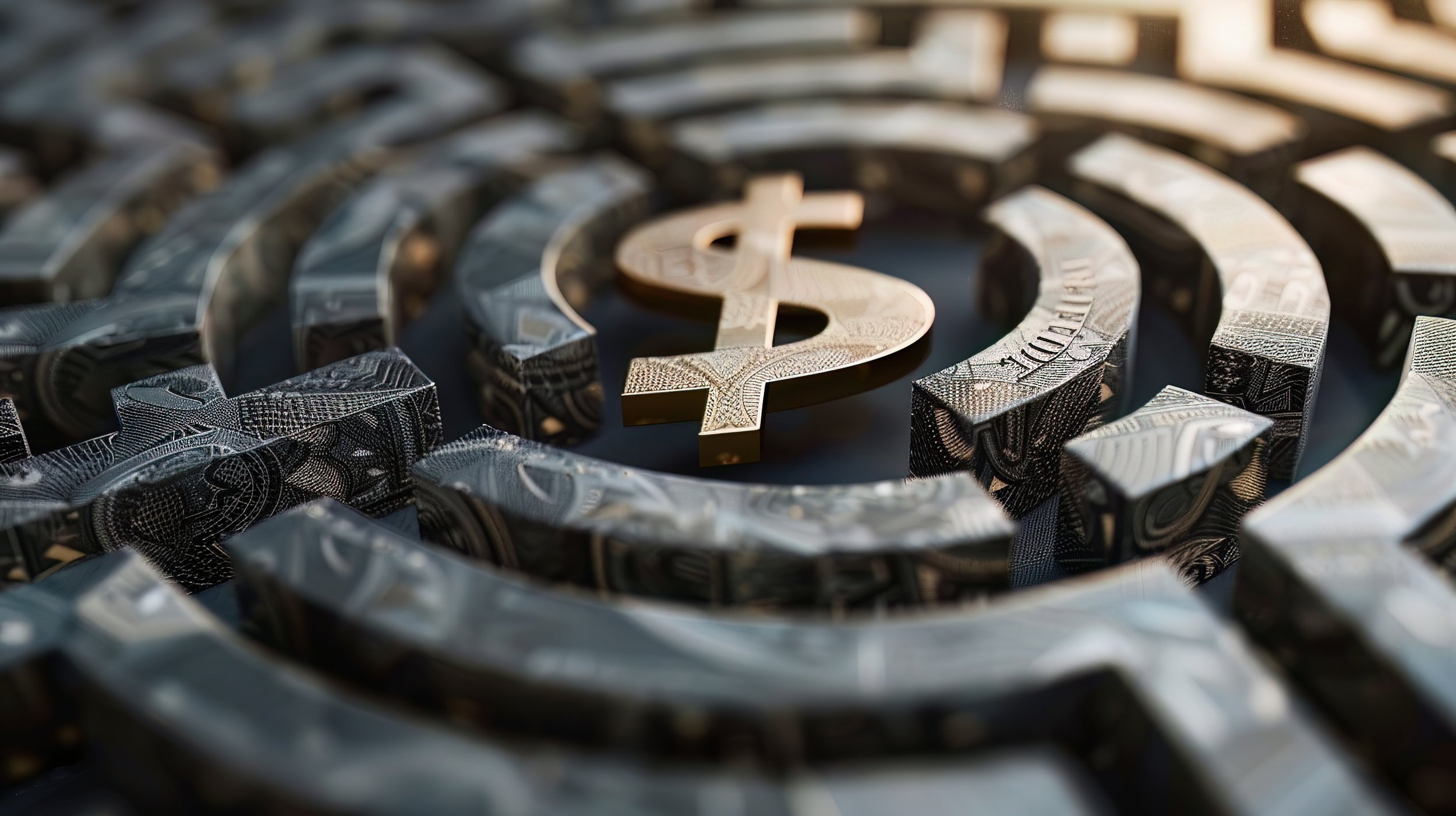In today's digital landscape the right approach to small business marketing combines advanced technology, data-driven insights, and effective digital platforms. Here’s a comprehensive guide to small business marketing to companies navigate the current marketing trends and tools that can drive business success.
Key marketing tools for small businesses
Following is a summary of 11 key marketing tools that small and growing businesses should consider when leveraging owned, earned and paid media:
1. An optimized small business website
A high-performing website is crucial for marketing today. An optimized site increases your page rank on Google and other search engines, and in today's world, fewer than 1% of searches go to the second page of a search. Key elements of an effective small business site include:
Memorable domain name: Choose a name that reflects your business and is easy to recall.
User-friendly design: Ensure your site is visually appealing and intuitive. Sites should have a clear structure, intuitive navigation and information that is easy to access.
Search engine optimization (SEO): Implement SEO best practices to rank higher in search engine results.
Mobile optimization: Since over 55% of global web traffic comes from mobile devices, you’ll want to ensure your site is mobile-friendly.
Valuable content: Regularly update your site with engaging content like blogs and articles that address your audience's interests and needs.
Fast loading times: Optimize page speeds to improve user experience and SEO rankings.
Secure hosting: Use reputable hosting services to protect your site’s data and performance.
Additionally, integrating tools like Google Analytics (now called GA4) and Google Search Console (GSC) can provide valuable insights into your site's performance and user behavior.
2. Paid search engine marketing (SEM)
Paid search engine marketing, in which you pay if a keyword is clicked on that drives traffic to your website, remains a powerful tool for driving targeted traffic. Platforms like Google Ads and Bing Ads allow you to:
Bid on keywords: Use tools like Google keyword planner to select high-value keywords relevant to your business.
Control costs: Set daily and monthly budgets, and adjust bids based on performance.
Analyze performance: Track key metrics to assess and refine your campaigns.
3. Paid listings and display ads
Paid listings on platforms like Yelp, Facebook, and Pinterest can boost visibility. Use Google’s Display Network to target ads based on user interests and behavior. This approach allows you to:
Choose ad formats: Use banners, text ads, or video ads to capture attention.
Track return on investment (ROI): Monitor clicks and conversions to measure effectiveness. Track your costs, record and monitor revenue, and record all expenses. Make sure to measure lead generation numbers, customer acquisition, and sales metrics as valuable insights into your marketing effectiveness.
Testing: By experimenting with different ad copy, targeting options, and formats, businesses can identify what resonates most with their audience, refine their strategies, and ultimately improve click-through rates and conversions. This can include A/B testing, target audience variations, ad copy variations, call-to-action (CTA) testing or visual elements where you test different images or videos to determine which visual elements attract more attention and engagement.
4. Content marketing
Content marketing remains a cornerstone of effective digital strategies. Key tactics include:
Blogging: Regularly post optimized content to drive organic traffic. Nine out of ten marketers use blogs as part of their content strategy.
Guest posting: Publish articles on popular platforms such as Medium and AllBusiness.com to enhance your reach and SEO. Strive to create “evergreen” articles, which are designed to remain relevant and valuable over a long period of time, regardless of current events or trends. Unlike timely articles that focus on current news or trends, evergreen content addresses topics that have enduring interest and utility.
Video content: In 2023, individuals spent an average of 17 hours a week watching videos online. Utilize platforms like YouTube and TikTok to engage your audience.
Content platforms: Leverage content recommendation platforms like Outbrain to expand your content’s reach.
5. Social media marketing
Social media is a powerful tool for engaging with your audience. Focus on platforms such as:
Facebook: Effective for broad audience reach and targeted ads.
Instagram: Ideal for visual content and influencer partnerships.
LinkedIn: Best for B2B marketing and professional networking.
TikTok: Useful for viral video content and younger demographics.
With over 5 billion global social media users and growing, effective social media marketing can significantly enhance your brand’s visibility and engagement. To be effective, you must regularly post interesting content to obtain and keep followers.
6. Influencer marketing
Influencer marketing involves collaborating with individuals who have a significant and engaged following on social media platforms like Facebook, TikTok and Instagram to promote products or services. These influencers, who can range from celebrities to niche content creators, leverage their credibility and relationship with their audience to drive brand awareness and influence purchasing decisions.
The impact of influencer marketing on broader marketing efforts can be profound, as it allows brands to tap into authentic, targeted communities that are often more receptive to recommendations from trusted (or at least known) voices.
This form of marketing can enhance brand credibility, expand reach, and generate higher engagement rates compared to traditional advertising. As consumers increasingly seek personalized and relatable content, influencer marketing has become a powerful tool for connecting with audiences in a meaningful way.
7. Online business directories
It’s important for business owners to list their companies in prominent and reputable business directories. Often these listings are free, but even if you must pay a small fee, it can be worth it.
The benefits include
Exposure to potential clients and customers.
Boosted SEO through backlinks.
Improved online presence and brand awareness.
Increased credibility for your business.
Low-cost or free marketing.
The following is a list of top business directories to consider listing your business:
AllBusiness.com
Better Business Bureau
Facebook Page
Google Business Profile
LinkedIn
Superpages
Bing Places for Business
8. Radio marketing
While less prominent today, radio can still be effective. Many people are in their cars during peak commute hours. To maximize radio advertising:
Targeted placement: Choose stations and time slots that align with your target audience.
Engaging content: Create memorable and concise ads.
Consider your market: Are you a B2C company (business to consumer) or B2B company (business to business)? Is your market local (like a neighborhood restaurant), national (such as selling payroll services), or international (such as selling unique clothing to multiple markets)?
The cost-effectiveness of radio compared to TV makes it a viable option for more localized campaigns.
9. Press releases
Press releases are valuable for announcing significant business updates. Ensure your release is:
Newsworthy: Focus on unique and timely information.
Well-structured: Include a strong headline, key details, and contact information.
Multimedia: Incorporate multimedia elements like images and videos to increase engagement.
10. Email marketing
Email marketing remains effective when executed correctly. Best practices include:
Segmenting: Personalize content based on customer preferences and behavior. Use data to segment your lists and target markets.
Offering engaging content: Provide valuable information, special offers, and updates.
Optimization: Use A/B testing to refine subject lines and content.
Using AI-driven tools: These can help automate and personalize email campaigns, improving engagement rates.
11. Direct mail marketing
Despite the digital age, direct mail still works for certain audiences. To optimize direct mail:
Use targeted lists: Use well-researched mailing lists to improve ROI.
Implement creative designs: Ensure your mail piece stands out and is easy to read.
Track mailings: Monitor responses and effectiveness.
More tips to enhance your marketing campaigns
Here are some additional tips to optimize your marketing campaigns:
Segment: Segment your target market to a specific audience. Segmentation can be done with respect to age, gender, income level, education, geography, purchase stage or brand loyalty, and more.
Business lists: Consider using high quality business lists such as Dun and Bradstreet, Experian Business, ZoomInfo or InfoUSA. These lists can be used in multiple channels as well, maximizing the value of the lists.
Track real time: Track your marketing campaigns in real-time to get immediate insights, make quick adjustments, and understand what is working or not.
Key metrics: Track the key metrics in your campaigns, such as click-through rate, engagement rate, conversion rate, sales, revenue, customer acquisition cost, market share, and churn rate.
Software and AI: Use software and artificial intelligence (AI) tools for social media management, content creation and testing of alternative ads.
Budget: Allocate your budget wisely. Assess the performance of different marketing channels and allocate your budget to the ones that deliver the highest ROI. Continuously review and adjust your spending to focus on the most effective strategies.
Keep current: Stay updated with trends. Keep up with the latest marketing trends and technologies. Experiment with new platforms, tools, or strategies to stay ahead of the competition and reach your audience in innovative ways. Keep up to date with experts by seeking articles from reputable business sources such as AllBusiness.com.
Promote across channels: Share earned media coverage on your website, social media platforms, and email newsletters. For instance, if a major publication writes about your product, feature this article prominently on your homepage or social media profiles.
Showcase social proof: Use earned media as a form of social proof by highlighting positive reviews, testimonials, or features from reputable sources. This can build credibility and trust with potential customers.
Strengthen relationships with media: Build and maintain good relationships with journalists and influencers. This can lead to more favorable coverage in the future and expand your media network.
Repurpose content: Convert mentions and reviews into additional content, such as blog posts, case studies, and infographics. For example, if your company was featured in a popular tech blog, you could create a detailed blog post about the experience and its impact.
Ready to enhance your small business marketing strategy?
Developing a comprehensive and modern small business marketing strategy requires leveraging a mix of traditional and digital techniques. By integrating artificial intelligence tools, optimizing SEO, utilizing effective SEM strategies, and harnessing the power of social media, you can create a dynamic and effective marketing approach. Start by experimenting with different strategies, tracking your results, and refining your approach based on performance data.



